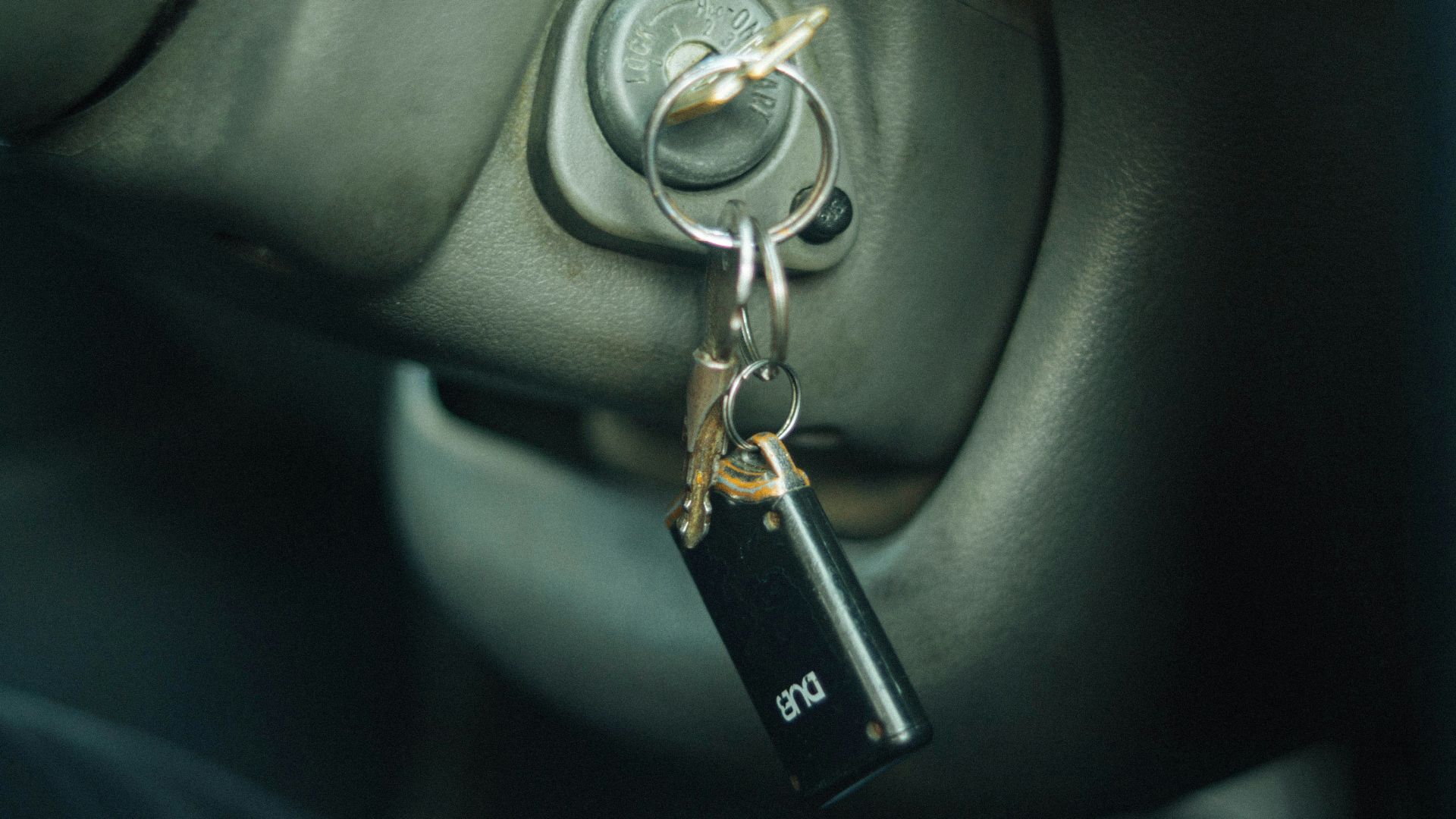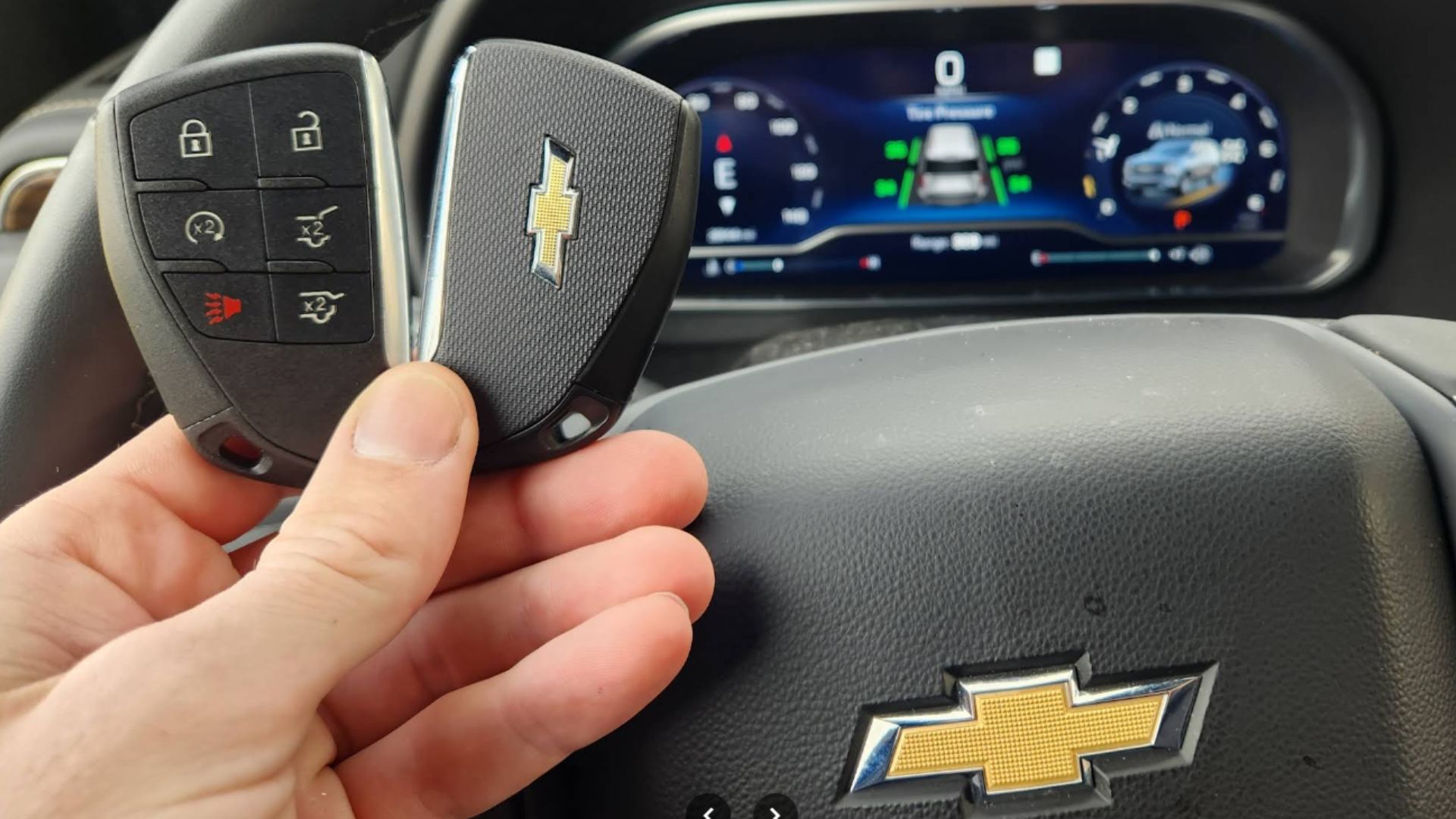There are several reasons why your car key might not turn in the ignition. A worn or damaged key may struggle to engage with the ignition cylinder. Additionally, dirt or debris can obstruct the key’s movement. Environmental factors, such as extreme cold or moisture, may cause components to contract or corrode. If the steering wheel is locked, applying gentle pressure while turning the key is essential. Persistent issues could point to internal component damage, necessitating professional assistance. Understanding these factors will help you troubleshoot effectively and determine the best course of action. More insights await you on this topic.
Key Takeaways
- Check for a worn or damaged key, as it may struggle to engage with the ignition cylinder properly.
- Ensure the ignition lock cylinder is free of dirt and debris that could obstruct key movement.
- Verify that the steering wheel is not locked; apply gentle pressure while turning the key.
- Examine the ignition cylinder for any stuck tumblers that may prevent the key from turning.
- If issues persist, consider seeking professional help to avoid further damage and potential ignition failure.
Common Causes of Ignition Problems
Ignition problems can often be attributed to a variety of factors that compromise the functionality of a vehicle’s starting system. One of the most common issues arises when the car key won’t turn in the ignition. This can be frustrating for drivers in Winston-Salem, as it often leads to delays and potential safety concerns.
Several underlying causes may contribute to this ignition key problem. First, a worn or damaged key can struggle to engage with the ignition cylinder, preventing it from turning smoothly.
Additionally, dirt or debris accumulation within the ignition switch can obstruct the key’s path, leading to difficulty in turning the key.
Another factor might be a malfunctioning ignition lock cylinder itself. Over time, the internal components of the cylinder can wear out, resulting in a failure to properly align with the key.
Furthermore, electrical issues such as a dead battery can also manifest as ignition problems, as the vehicle may not receive the necessary power to start.
Key and Ignition Component Issues
When experiencing difficulties with a car key that won’t turn, it is essential to consider both the key and the ignition component issues that may be at play. A damaged or worn key is often the first culprit. Over time, keys can become bent, worn down, or even develop deep scratches that hinder their ability to engage with the ignition cylinder properly.
Additionally, internal ignition components may contribute to the problem. The ignition cylinder itself can wear out, leading to misalignment or obstruction within the mechanism. Dust and debris can accumulate within the ignition, further complicating the interaction between the key and the cylinder. In some cases, the tumblers inside the ignition may become stuck, preventing the key from turning.
Another critical aspect to examine is the vehicle’s steering lock mechanism. If the steering wheel is locked, excessive force may be required to turn the key, which can lead to further damage.
It is advisable to consult with a professional locksmith or automotive technician to accurately diagnose and resolve these issues, ensuring both the key and ignition system function correctly for reliable vehicle operation.
Environmental Factors Affecting Ignition
Environmental conditions can significantly impact the functionality of a car’s ignition system. Variations in temperature, humidity, and exposure to elements can lead to a variety of ignition-related issues. For instance, extremely cold temperatures can cause the ignition lock cylinder to contract, making it difficult for the key to turn.
Similarly, excessive moisture can lead to rust and corrosion within the ignition components, impeding the key’s movement.
Moreover, dirt and debris can accumulate in the ignition system, particularly in regions with high dust levels or heavy rainfall. This buildup can obstruct the key’s path, preventing smooth operation.
Additionally, exposure to extreme heat can damage internal components of the ignition system, leading to malfunctions.
In regions like Winston-Salem, where seasonal changes can be pronounced, vehicle owners may notice that their ignition systems behave differently during various times of the year.
Ensuring proper maintenance and considering these environmental factors can be crucial for maintaining a fully functional ignition system. By recognizing the potential impacts of environmental conditions, car owners can take proactive measures to mitigate ignition-related issues.
Troubleshooting Steps to Take
If you find that your car key won’t turn in the ignition, there are several troubleshooting steps that can help diagnose and potentially resolve the issue.
First, examine the key for any signs of damage or wear. A bent or worn-out key may not engage properly with the ignition cylinder. If the key appears damaged, consider using a spare key if available.
Next, ensure that you are fully inserting the key into the ignition. Sometimes, the key may not be aligned correctly, preventing it from turning.
Additionally, check if the steering wheel is locked; turning the wheel while applying gentle pressure to the key may help unlock it.
Another step is to inspect the ignition cylinder for debris or foreign objects that could be obstructing the key’s movement. If dirt or grime accumulates within the ignition, it may hinder functionality. Cleaning the cylinder gently with compressed air can resolve this.
Lastly, if your vehicle has a manual transmission, ensure that it is in the neutral position. In some models, the ignition system will not allow the key to turn if the transmission is in gear.
Following these steps may help you identify and rectify the problem.
When to Seek Professional Help
Ignition problems can sometimes exceed the scope of simple troubleshooting, necessitating professional intervention. If you have followed basic troubleshooting steps—such as checking the steering wheel lock, inspecting the key for damage, and ensuring the battery is functioning—and your car key still won’t turn in the ignition, it may be time to seek expert assistance.
Professional help is particularly warranted if you suspect internal components of the ignition system are damaged. Common issues include worn tumblers, faulty ignition switches, or misaligned ignition barrels. Attempting to force the key to turn can exacerbate these problems, potentially leading to more extensive and costly repairs.
Additionally, if you experience recurring ignition issues, it is crucial to consult a specialist. A qualified car locksmith can perform a thorough diagnosis, identifying underlying problems that may not be immediately visible. Ignoring persistent ignition difficulties can lead to a complete ignition failure, leaving you stranded and facing higher repair costs.
Winston Salem’s Trusted Locksmith
In conclusion, a car key that fails to turn in the ignition can stem from various issues, including key damage, ignition cylinder deterioration, and environmental factors. Implementing the appropriate troubleshooting steps is essential for identifying the root cause of the problem. Should these measures prove ineffective, seeking assistance from automotive professionals in Winston-Salem is advisable. Expert intervention can facilitate a thorough diagnosis and ensure the restoration of proper ignition functionality, ultimately enhancing the driving experience.
Affordable Car Keys LLC
Serving Winston-Salem, Clemmons, Lewisville, NC & surrounding areas
(336) 365-0050



